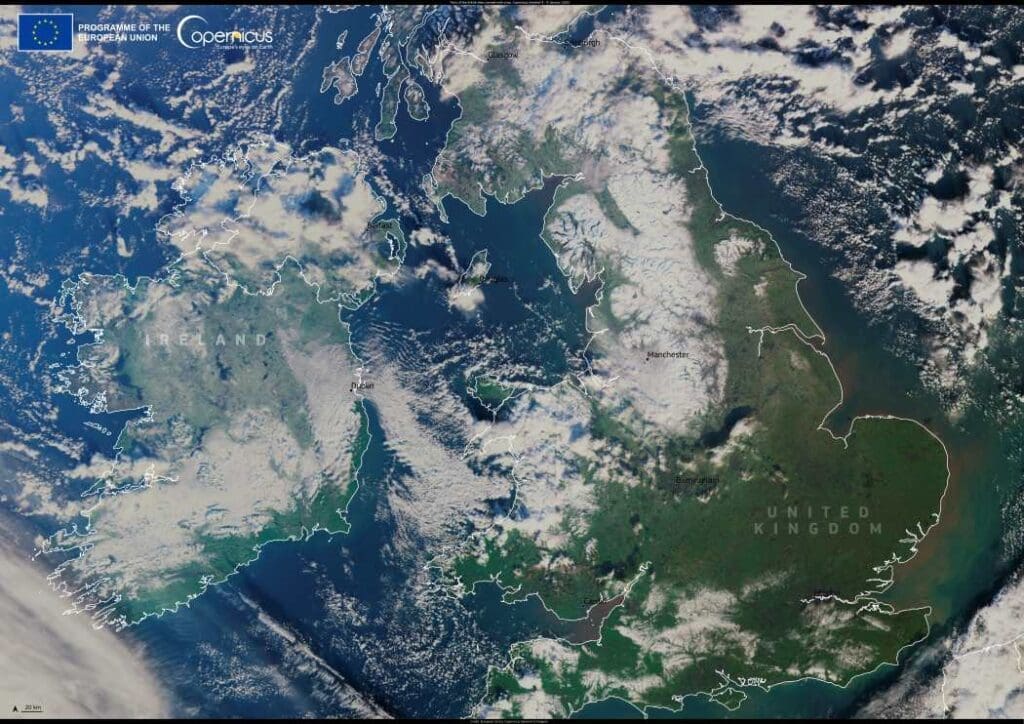By Filippos Proedrou, University of South Wales and Maria Pournara, Swansea University | The Conversation
The EU recently passed a law that criminalises actions “comparable to ecocide”. It’s a revolutionary legal development – the first law of its kind to be adopted by a political entity with substantial global influence. Nevertheless, some limitations in the definition of the crime may undermine the legal grounds for successful prosecution.
Ecocide literally means the killing of our home. It involves excessive harm that brings severe environmental degradation and collapse and is tightly linked to runaway climate change. The largest fossil fuel companies knowingly emitting vast amounts of carbon dioxide could count as ecocide, as could deforestation of critical ecosystems such as the Amazon.
In 2021 an independent panel of experts commissioned by the campaign group Stop Ecocide International defined ecocide as “unlawful or wanton acts committed with knowledge that there is a substantial likelihood of severe and widespread or long-term damage to the environment being caused by those acts”.
The EU’s new ecocide law follows this definition closely. Member states have two years to adopt it into their national legislation. If they fail to do so, they could be referred to the Court of Justice of the European Union and could face financial sanctions.
Legal pitfalls
There are two types of acts that can establish liability for environmental criminals. The first are “unlawful” acts. This may seem rather straightforward as prosecutors can simply point to a breach in national legislation.
The problem is that what is illegal can vary from country to country. For example, high-emissions businesses operating in EU countries with net zero goals (for example Finland by 2035 or Germany by 2045) could move to Poland, the only EU member not committed to a net zero goal.
Or consider Bulgaria, which has become a hub for imported waste from other European countries due to laxer environmental enforcement. These discrepancies could lead to environmental criminals simply moving to more favourable jurisdictions to avoid prosecution.
Reckless disregard
The second type of acts that can establish liability are “wanton” acts. In the expert panel’s definition, these refer to acts committed “with reckless disregard for damage which would be clearly excessive in relation to the social and economic benefits anticipated”. This enables defendants to potentially escape prosecution only by demonstrating how their actions that harm the environment also provide substantive benefits. Energy companies producing electricity from coal and gas, for example, can claim that the social benefit of providing electricity, and thus keeping the lights on and houses warm, justifies their emissions.
The word “reckless” sets the bar for prosecution too high, as it will need to be proven that perpetrators have provoked excessive harm (also compared to the ensuing benefits). Another way for environmental criminals to escape prosecution is to argue that the scale of the damage is not “clearly” excessive compared to social and economic benefits.
Take the plastic, fertiliser or chemical industries as an example. Their fossil fuel-based practices generate emissions, pollute the air and degrade the environment. They also, however, create jobs and help produce more food, among other things. It will be interesting to see how courts will define what constitutes clearly excessive damage in such cases.
Furthermore, prosecutors will have to prove that environmental criminals knew that there was a substantial likelihood of the damage occurring. However, this can be incredibly difficult to prove. Polluters, after all, do everything they can to improve their public image and rarely admit to knowingly causing pollution, even in private.
Claims of ecocide could be used to support environmental litigation cases against big polluters or emitters. But such cases will be hard fought by these powerful companies and will therefore take time, in contrast to very pressing timeframe left to address climate change.
All this means the EU’s definition of ecocide seems to provide a vehicle for corporations to escape prosecution instead of functioning as a sharp tool in the hands of prosecutors.
These legal challenges notwithstanding, the new law has significant merits. It creates the legal grounds for the prosecution of carbon criminals, bridging a critical gap in legislation. It also stipulates substantial fines for companies found in breach of the legislation. And by exposing CEOs and board members to a threat of up to ten years in jail, even when operating under a government permit, it creates a strong deterrent.
We also expect the ecocide law to make the continuation of business as usual seem morally weaker, while strengthening the case for the transition to low-carbon energy. In this context, the criminalisation of ecocide can be seen as a powerful tool alongside established measures in EU climate policy, such as incentives for renewable energy production and energy efficiency.
Filippos Proedrou, Senior Lecturer in Global Political Economy, University of South Wales and Maria Pournara, Lecturer in Criminology, Swansea University
This article is republished from The Conversation under a Creative Commons license. Read the original article.
Featured image credit: rawpixel.com | Freepik.com




